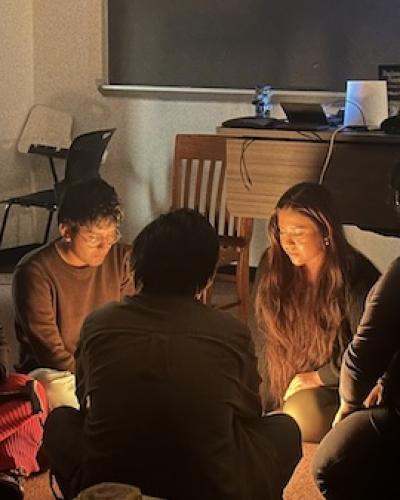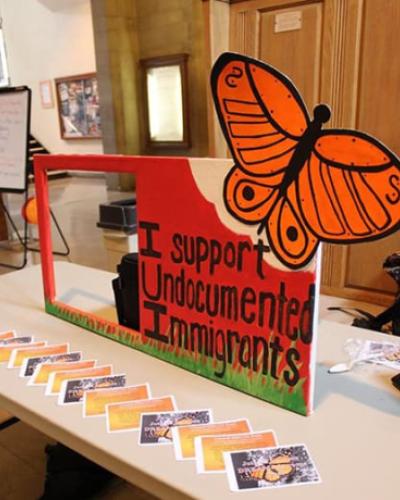We welcome each and every action and gesture of support for Dreamers, the beneficiaries of the Deferred Action for Childhood Arrivals Program (DACA), the Obama administration’s executive initiative to circumvent an antagonistic Congress and address the plight of young immigrant children whose presence in this country responds to circumstances beyond their control. The recent SCOTUS decision, Department of Homeland Security v. Regents of University of California et al, 591 US ___ (2020), in which the Supreme Court, by the slimmest of margins—a 5-4 vote—foils the current administration’s attempt to delegitimize the program, is to be hailed and celebrated as an accomplishment in the context of the anti-immigration initiatives prevalent in our times. As the majority opinion fittingly acknowledges, these Dreamers, most of whom are Latinx, have grown to be overwhelmingly productive, long time members of US society whose work contributes to the common weal, with settled family lives and adult obligations, and deep roots in their communities, deserving a legislative solution to their status through a viable path to citizenship.

This decision, though, gives Dreamers but a brief respite. It does not bring closure to the precarity of their presence in the United States nor fully secures their future. Not only is the decision close, it is based on narrow procedural grounds and the majority opinion explicitly avoids ruling, even in passing, on DACA’s own legitimacy. Yet the dissenting justices equally explicitly condemn it as inherently invalid and an illegitimate exercise of executive overreach, potentially laying future grounds for DACA’s eventual demise. Only Associate Justice Sotomayor, joining the majority opinion yet dissenting on its dismissal of constitutional grounds, rises to the occasion by stressing how the administration’s public policy pronouncements, describing immigrants in highly racist stereotypes, establish legitimate grounds for constitutional claims of equal protection and document how discrimination informs these attempts to dismantle DACA.
In effect, the decision gives the current administration the leeway, even an invitation, to rectify the flaws that affected their rescission of DACA. In practice, this will certainly entail yet another lengthy administrative and legal battle, feeding the hope that, perhaps, a legislative solution will emerge to legalize and, thus, rectify the Dreamers’ status. Given the widespread support—74% of the general U.S. population—that they have garnered in their communities, it is evident that this particular piece of anti-immigration animus is out of step with U.S. society as a whole. But policy makers and legislators have yet to heed these expressions of public support.
Ultimately, then, beyond its immediate effect of placing DACA’s dismantling in abeyance, the best outcome for the Supreme Court’s gesture remains in its potential for triggering a vigorous political response leading to widespread policy change. In its legalistic malabarismo, its formalist maromas, the decision underscores how political action is our best recourse for addressing the demonization of immigration now prevalent in the United States.
In solidarity,
Latina/o Studies jointly appointed/former director faculty:
Debra A. Castillo, Director, Latina/o Studies
Vilma Santiago-Irizarry, Incoming Director effective 7/1/2020
Maria Cristina Garcia, Latina/o Studies/History
Ella Diaz, Latina/o Studies/English
Karen Jaime, Latina/o Studies/Performing and Media Arts
Sergio Garcia-Rios, Latina/o Studies/Government
Sofia Villenas, Latina/o Studies/Anthropology
Mary Pat Brady, Latina/o Studies/English
Hector Velez, Latina/o Studies/Sociology
Additional readings:
Even with SCOTUS win, Dreamers are still vulnerable
DACA decision greeted with cautious optimism




